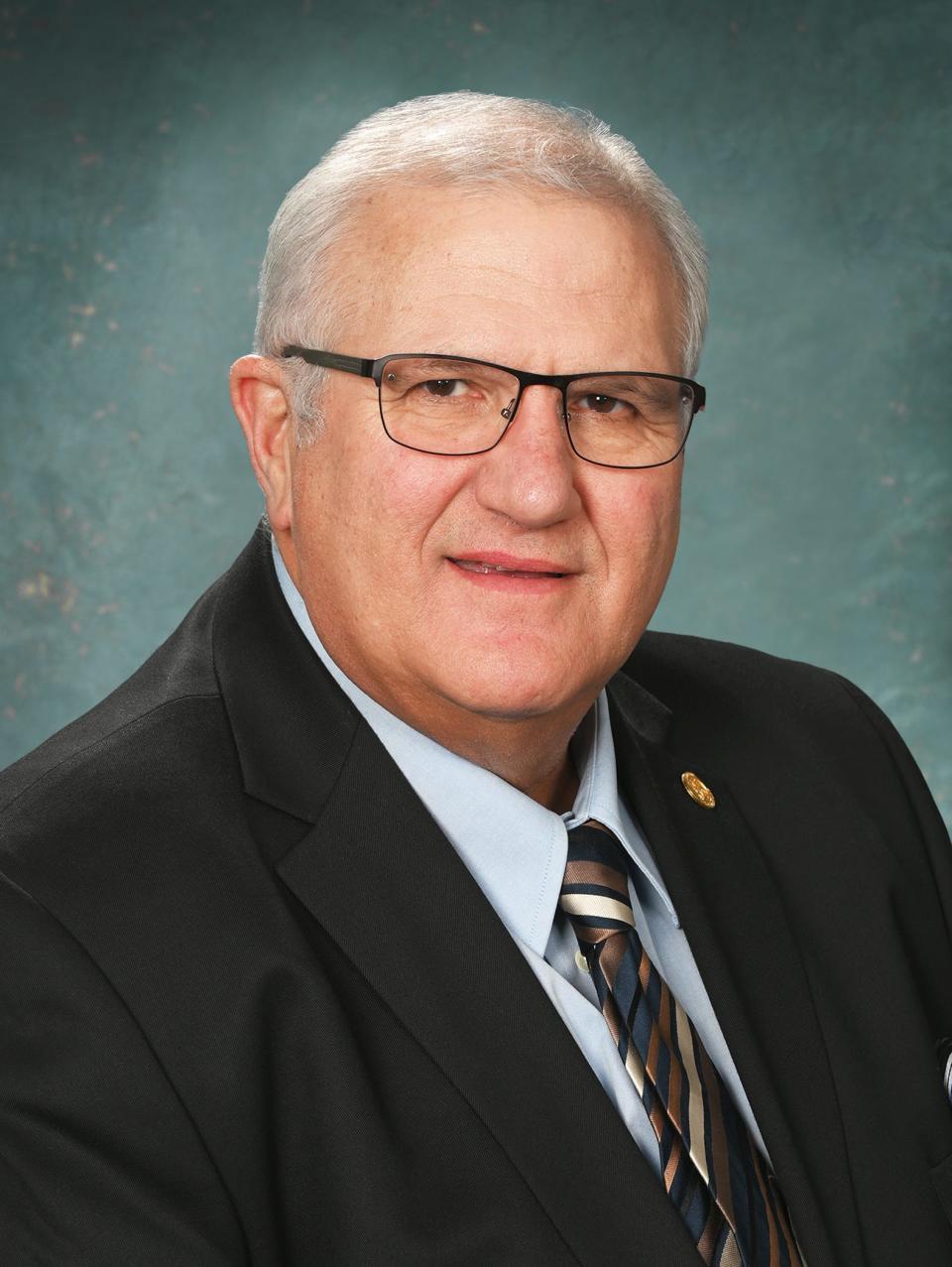Michigan Legislature approves $1.1B supplemental spending bill
- Oops!Something went wrong.Please try again later.
LANSING — The Michigan Legislature on Thursday approved a supplemental spending bill totaling $1.1 billion over two years, but some Republicans are complaining about how the new Democratic leadership moved the spending through the legislative process.
State Reps. Jim DeSana, R-Ash Twp., and Dale Zorn, R-Onsted, were two legislators who were expecting to have time to review the bills. They voted "no" on both of them because time was not given to review them, they said in news releases.

“It’s a new year, new legislative term, new party in control of the Legislature — and unfortunately we’re not off to a great start,” Zorn said in the release. “Sadly, the first legislation House Democrats decided to put up for a vote was a secret spending plan they forced a vote on without any opportunity to review. They bypassed the typical process — put in place to make sure legislators and the public have a chance to thoroughly vet legislation — and chose to operate in the dark. I hope this is not a preview of how the next two years are going to be handled.”

“In the final hours, these bills grew to a massive $1.1 billion, and then we were asked to vote them through without any chance to review the spending,” DeSana said. “I may be new to the Legislature, but I’m not a fool. I respect the people I serve too much to rubber-stamp a bloated spending plan slapped together behind closed doors.”
An example of what was in the bill is $200 million to support a paper mill near Escanaba, in Michigan's Upper Peninsula. The $200 million in incentives the state would pay to support Sweden-based Billerud, the owner of the Escanaba Mill, would be contingent on the company spending at least $1.1 billion on the project, according to budget documents.
The budget documents did not specify what project is to receive the money. But Sen. Ed McBroom, R-Vulcan, confirmed Thursday that the incentive is aimed at the mill in Delta County, which can employ more than 1,000 people. The mill earlier received Michigan Strategic Fund support described as a first step in supporting a planned private sector investment of more than $1 billion.
"Billerud is our largest employer in the U.P," said McBroom, and the project will revitalize a mill that is near the end of its life and switch its product to high-demand paper packaging from kraft paper, which is in decline, he said.
McBroom was among the Republican "yes" votes when the Senate voted 24-14 to approve the conference report on Senate Bill 7 late Thursday. The House later approved the conference report 60-48, with some Republican support. The bill now goes to Democratic Gov. Gretchen Whitmer for her expected signature.
The conference committee report also includes money to reduce blight in cities, increase affordable housing, help businesses hurt by the pandemic, and create a state fund to prevent drinking water shutoffs. Details of that program, which would be managed by the Treasury Department, were not provided.
Earlier, the conference report, which was not made public until Thursday, was approved 3-2 in committee a party-line vote.
"I like that we actually took the time to invest in a bunch of priorities that people have said that they needed prioritized," Sen. Sarah Anthony, D-Lansing, chair of the Senate Appropriations Committee, said after the conference committee meeting she chaired. "We did so urgently," and "we closed our books," on the 2022 fiscal year that ended Sept. 30, Anthony said.

The bill includes $146.3 million in spending for the 2022 fiscal year, nearly all of which is federal, and $946.2 million in spending for the 2023 fiscal year, of which $706.2 million would come from the state's general fund. The state currently has a budget surplus calculated at $9.2 billion.
Republicans have complained that Democrats who took control of the Legislature Jan. 1 turned an exercise to close the financial books for 2022 into a spending spree. But neither of the two Republican members of the conference committee, Sen. Jon Bumstead, R-North Muskegon, or Rep. Ken Borton, R-Gaylord, would say why they voted no, as they left the meeting.
More:5 takeaways from Whitmer's State of the State speech
More:Buttressed by Democratic majorities, Whitmer lays out vision in State of the State speech
Sen. Thomas Albert, R-Lowell, a former House Appropriations chairman, voted no and said the spending is reckless with a likely recession looming.
"We should not take careless votes today that could potentially result in cutting services later this year," Albert said.
The 2022 spending is mostly $120 million to cover overspending in the state health department's food assistance program.
Spending for 2023, in addition to the $200 million for Escanaba, includes:
$150 million to deposit into the state's Strategic Outreach and Attraction Reserve (SOAR) Fund, which the state has used to pay major incentives to manufacturers with plans to build batteries and electric vehicles.
$150 million to develop a tax credit program to "reduce the housing cost burden of residents," and $50 million to support affordable housing projects for "missing middle" households, which the Michigan State Housing Development Authority defines as households with incomes between 185% and 300% of the federal poverty guidelines.
$75 million to support programs to help businesses disproportionately impacted by the COVID-19 pandemic.
$75 million for blight elimination in cities.
$25 million to create a Water Shutoff Prevention Fund in the Treasury Department.
$25 million to support the expansion of statewide apprenticeship programs.
The split vote in the committee was unusual during the administration of Gov. Gretchen Whitmer. Democrats and Republicans generally reached consensus on previous supplemental spending bills.
This article originally appeared on The Daily Telegram: Michigan Legislature approves $1.1B supplemental spending bill

